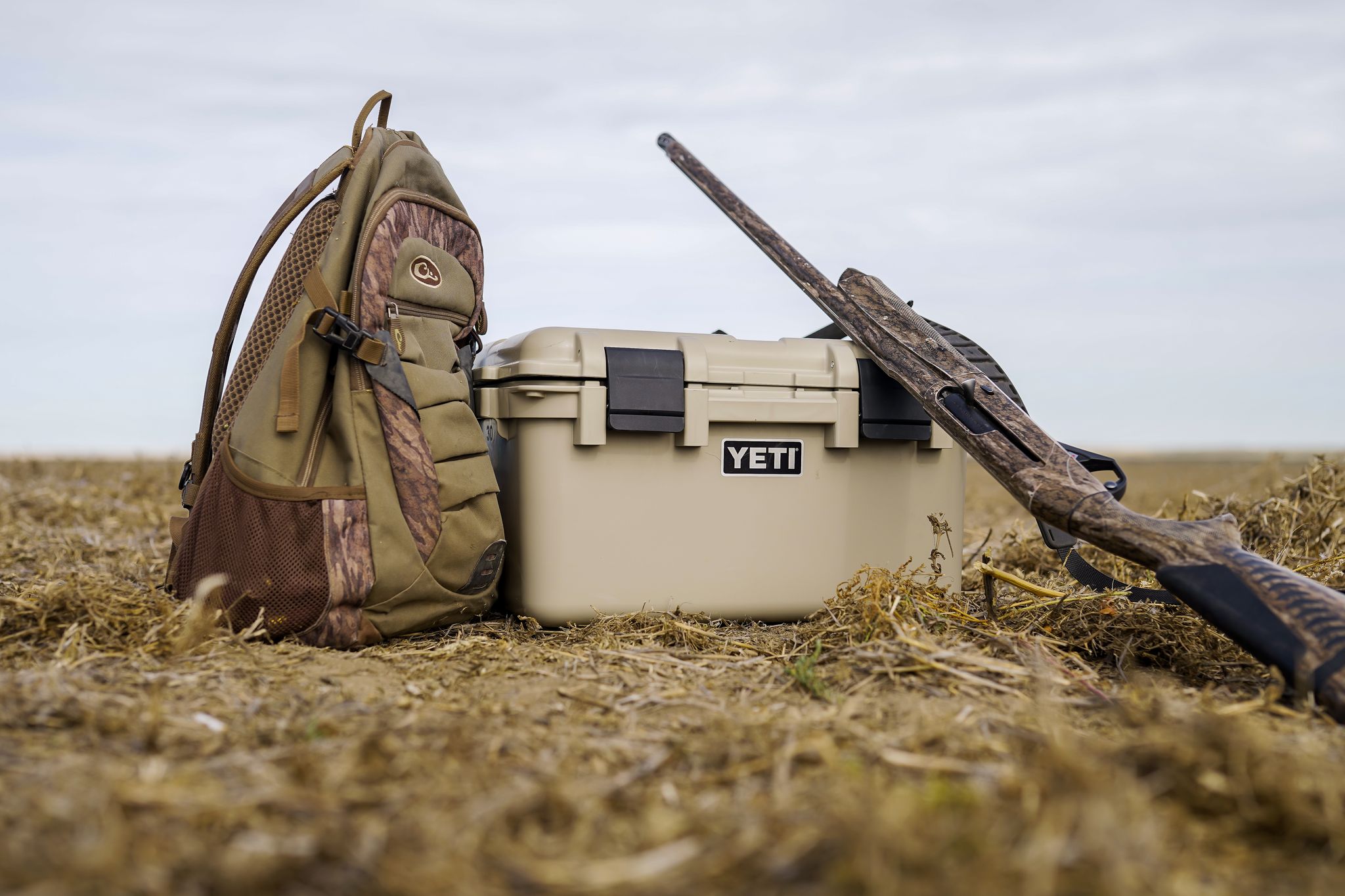Hunting Equipment: Tips and Care
Posted by Jason Ford on Jul 7th 2020

If you’re a novice hunter, there are certain mistakes that you simply have to live through in order to avoid them in the future. For instance — waterfowl hunters spend a ridiculous amount of time wading through water. That is why it’s important to have good waders, in order to preserve your warmth (and in the long run, bladder health).
Most of us have gone through a particular ordeal — you start feeling like there’s a tiny leak somewhere in your waders. You know that this could potentially ruin your hunting trip, but you decide to bear through it as it's nothing much. However, the next time around, this small leak widens, and half of your leg is soaked in water.

These are the basic rookie mistakes that stem from not taking proper care of your equipment. And that can be reasonable from a certain point of view — waterfowl hunting means dealing with quite a lot of equipment, and maintaining it all can be a chore. Trust us, though — prevention is truly the best medicine. The last thing you want is to get stuck in a marsh at the break of dawn and have to make repairs there.
That’s why we’ve prepared a couple of tips on basic equipment maintenance for your waterfowl hunting gear right here!
Waders
If you do get a leak in your waders, don’t despair. It’s not the end of the world, and you don’t even have to buy new ones. There are plenty of efficient sealant solutions on the market, specifically made for hunting waders. We recommend stocking up on such repair kits and checking your waders for leaks the day before your hunting trip.
Obviously, the waders could be torn on the trip itself — that’s why we recommend taking one of those repair kits with you and storing it in your shell bag. And sure, you can invest in more expensive and sturdier waders that are less likely to be torn while you’re out in the field.

However, you need to understand that a split second is enough to damage even the most well-made hunting waders. They’re far from body armor, and you must not take their quality for granted. While the modern models are far tougher than those made a couple of decades ago, they’re still not likely to go unscathed through a particularly harsh thicket or brier patch.
Also, the way you store your waders when you’re not using them will also influence how well they age and how long they retain their quality. Storing them properly over the course of the off-season will save you a lot of pain and trouble down the line. Make sure you’re not keeping them in a garage that’s not protected from heat all summer long. And definitely don’t just throw them on a pile in some corner; creasing will make them more susceptible to damage.
Once you’re done with hunting for the season, give them a good cleaning and let them dry off. After this, make sure they’ve got room to be flat in some sort of storage area or closet.

Shotguns and Knives
When you set out to hunt waterfowl, chances are you will have to invest in a good shotgun. If you’re a novice in this sport, you may not realize how much maintenance a gun requires if you want to keep it functional for a long time. Once you’re done with a hunt, you need to unload it and remove the gun out of the casing to prevent any moisture and rusting.

There are special cleaning solvents for guns, so use these sprays to prevent the moisture from seeping into metal parts. The most efficient way to perform this maintenance is to point the barrel towards a towel so that it gathers the solvent. Proceed to spray the barrel and the receiver, and then use the towel to wipe any remaining solvent. You can use some gun oil to coat the exterior of the gun as well.
It’s vital that you don’t allow any oil or cleaning solvent to go backward and drain into the shotgun’s mechanics. The solvent won’t dry off if the weather is cold, and the oil will definitely result in clogging of the internal mechanism. Any duck hunter knows the woes of excess oil.

If you’re hunting with a gas-based autoloader, we recommend cleaning the gun in detail and taking it apart after the end of each hunt. Gas systems are quite vulnerable from gunpowder buildups. With that in mind, you want to be rid of any potential residue by giving the magazine tube and gas piston a thorough cleaning. That way, your gun will have no issues with ammo feeding.
That’s why breaking down your weapon once you’re done with each hunt is an important segment of equipment maintenance. And keeping guns in near-mint condition isn’t the only reason for this — it’s also smart to do because your guns are far safer that way. Remember, weapon malfunctions can be dangerous — so do everything you can to keep your weapon reliable.

Also, guns aren’t the only piece of gear that needs regular cleaning after the hunt. Most waterfowl hunters carry machetes, axes, or knives for field purposes. Make sure you sharpen these as often as you can and keep them clean after each trip.

Duck Calls
Almost every duck hunter uses some sort of call — but many don’t realize that these also require maintenance if they’re going to work properly. For instance, a wooden duck call needs to be cleaned but also dried to prevent moisture. This is crucial, as any moisture will distort its tone and make it far less effective.
On the other hand, acrylic calls don’t really require that much care. The only part you need to remember here is to not leave it out on a hot day. Heat can actually distort its size, causing enough changes to the sound to make it unusable.

Cork wedges also have to be replaced, as they degrade over time. And once these become weak, the call itself will be less effective.
Boat Motor
Many boat motors break down after a while — and experienced marine owners claim that it’s mostly due to faulty fuel systems. If you don’t want this happening to you, prevention is important. Don’t just use dirty cans to fuel up your boat; these contain debris that will slowly seep into your boat’s gas line and cause clogging. Use a clean, fresh container each time. There are also fuel stabilizers that you may want to use.

Conclusion
All of this may make waterfowl hunting seem like too much work. However, if you want to remain safe and unbothered by faulty equipment on the hunt itself — you should ease into a routine of maintenance during hunting seasons. After a while, you won’t even have to think about this stuff, you’ll just be doing it.
